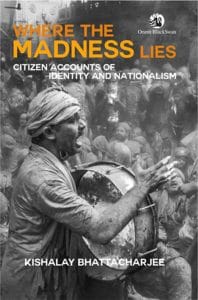There is a general consensus that in 1820, China had the world’s largest economy. By the end of the century, it was suffering from an existential crisis. Much ink, scholarly and otherwise, has been spilled as to what went “wrong” and why; somewhat less common are discussions as to how China came to terms with the new globalized reality and what it, and Chinese society, did to emerge from the other side.
Over the last several years, young adult readers have been able to enjoy more books set in Asia, from K-Pop stories to Taiwan summer camp tales to novels about American teens who are sent to live with relatives for language and culture immersion. But the choices for younger readers, namely those not yet in high school, are still limited. Authors like Grace Lin and Lenore Look have written middle grade novels in which characters spend summers in Asia, but Christina Matula has created a series of novels for preteens set completely in Asia that does not center around American kids. Her first book in the series, The Not-So-Uniform Life of Holly-Mei, introduces the eponymous character and her new life in Asia after her mother takes a job in Hong Kong. This book tackles the issues of being a new kid at school, adjusting to a new culture, and missing her Taiwanese grandma back in Canada.
Rachel Heng writes in The Great Reclamation about the making of modern Singapore, a sweeping story with hints of magical realism. The book is substantial at 450 pages and spans a period of twenty-five years, but Heng’s writing is engaging from the beginning and it doesn’t take long for the story to pick up speed.
In 2014, Indian Prime Minister Narendra Modi closed the Planning Commission, which he accused of stifling the country’s growth and being a holdover from the country’s time as a socialist country. It was an ignoble end to the government body, which in the early days of independence charted the country’s Five-Year Plans for economic development.

The idea of citizenship today conveys a static dullness, a clerical certification, and a fixed sense of identity. By re-examining the relationship between citizenship and nationality, Where the Madness Lies redefines the multiple sources of identity that ordinary people contend with. Citizenship becomes a critical theatre where diverse identities crisscross to create new forms of meaning and interaction.
The “six” in Dinner for Six is the number at the assembled table when a Chinese widow and widower form a temporary family with their respective son and daughter each. Author Lu Min, in this translation from Nicky Harman and Helen Wang, first focuses on the widow’s son Ash, who becomes shaped by all the sympathy from the community after his father’s death. This death itself is not addressed for the point of interest is the Crossroads, a neighborhood in the shadow of factories.
Can Xue’s experimental novella Mystery Train opens in total darkness: a chicken-farm employee named Scratch wakes up to find himself “in one of [the] pitch-dark sleeper cars” of a train. Confused, Scratch gets out of bed and looks at his wrist to check the time, but is unable to make out the face of his watch at all. In fact, Scratch peers around the cabin and can’t “see a thing.” He tries to recall the events that brought him to this place, but even that eludes him. As he racks his brain, a single “dim, pre-sleep memory” forms—and at that, the story slowly starts to unfold.
While the first two books in Ahmet Altan’s “Ottoman Quartet”, Like a Sword Wound and Love in the Days of Rebellion, could be read as stand-alone novels, the third installment, Dying is Easier than Loving, requires familiarity with the story that came before.
A Bad Girl’s Book of Animals was first published by Harcourt, Brace & World in 1969, when there were very few Asians with a poetry collection out in the US—and has now been put out again by Singaporean publisher Ethos with an excellent foreword by poet Tse Hao Guang.
The Myanmar coup on February 1, 2021 shocked the world, and ended an opening that had fostered hopes for democratization and economic development. The Tatmadaw, Myanmar’s military, reversed a decade’s worth of changes, and sparked a civil conflict that has continued for two years since the coup.

You must be logged in to post a comment.